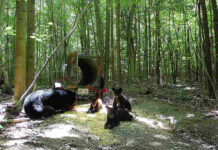SALEM, Ohio – As the United States gets ready to relax its border restrictions with Canada and Canadian officials continue their search to rule out more cases of mad-cow disease, U.S. cattle producers are preparing for a fight.
Ranchers-Cattlemen Action Legal Fund, United Stockgrowers of America (R-CALF) contends the USDA has not taken the proper steps to ensure consumers’ safety or to protect cattlemen from economic hardship.
‘Unbelievable.’ “It’s unbelievable that R-CALF has to remind USDA that the Animal Health Protection Act obligates the agriculture secretary to ‘protect the agriculture, environment, economy, health and welfare of the people of the United States,’ and specifically to prevent, detect, control and eradicate animal diseases,” said R-CALF President Leo McDonnell.
In a 36-page lawsuit filed Jan. 10 – before Canada’s most recent case of mad cow was confirmed – R-CALF asked a district court to stop the USDA from allowing Canadian live feeder cattle into the United States.
Timeline. After Canada’s first mad-cow case in May 2003, the United States closed its border.
Last month, the USDA published a ruling that set a March 7 target date for reopening that border. However, the same day the United States announced its decision, Canada was testing a BSE “suspect” animal.
Four days later, Jan. 2, Canada confirmed the 8-year-old dairy cow from Alberta was BSE positive.
USDA officials immediately issued a statement saying the United States still considered Canada a minimum-risk region and stood behind its decision to resume trade.
But a week later, Jan. 11, Canada announced another mad-cow case, this time a 6-year-old beef cow from another Alberta farm.
Soon after, the USDA said it was sending a team to Canada to “evaluate the circumstances surrounding these recent finds.”
The results will determine what to do about reopening the border, said Ron DeHaven, administrator of USDA’s Animal and Plant Health Inspection Service.
Postpone. R-CALF used this latest mad-cow case to bolster its claim that either the USDA should withdraw its ruling or Congress should use its power to reject it.
National Cattlemen’s Beef Association, National Farmers Union, and American Farm Bureau are all also pushing the USDA to reconsider, or at least review, the move to open the Canadian border and the country’s feed policies.
Driving this heightened concern is that the most recent BSE case was found in an animal born after the feed ban began.
Like the United States, Canada implemented a feed ban when it was determined that feeding cattle other animals’ remains increased the chances of BSE.
This went into effect in 1997, one year before the most current infected cow was born.
The Canadian Food Inspection Agency, however, says when the cow was young it likely ate feed produced before the ban went into effect, meaning producers were not in compliance with the ruling.
The compliance issue. “Science shows the feed ban breaks the cycle of this disease, and U.S. cattlemen must be confident of Canada’s full compliance with its feed ban,” said Jan Lyons, president of National Cattlemen’s Beef Association.
Only after this compliance is assured will members consider their position on reopening the border, she said.
(Reporter Kristy Hebert welcomes feedback by phone at 800-837-3419, ext. 23 or by e-mail at khebert@farmanddairy.com.)
RELATED STORIES:
Get 4 Weeks of Farm and Dairy Home Delivered









